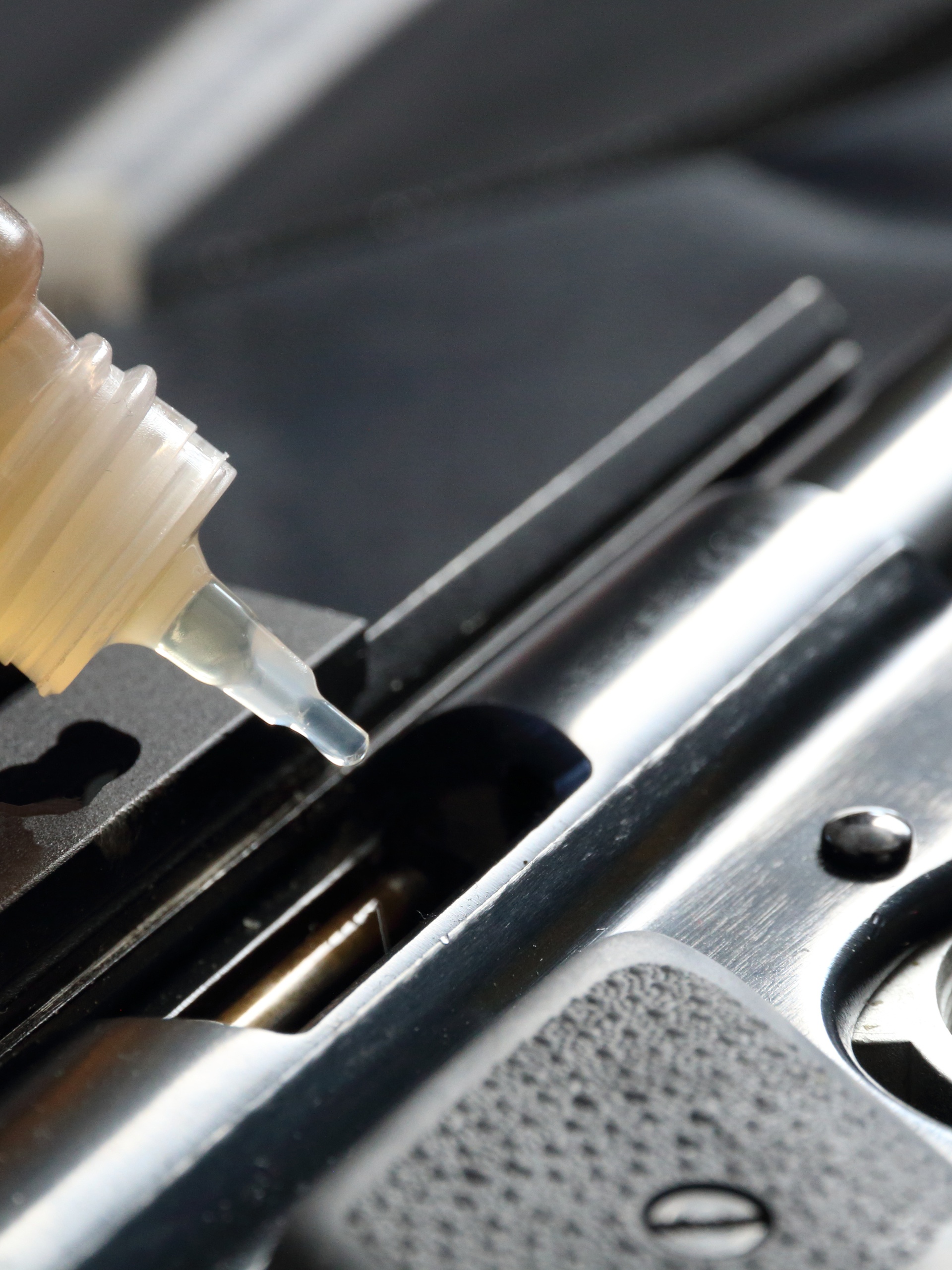Maintaining your firearm goes beyond regular cleaning—it’s also about lubrication. A proper lubricant ensures smooth functionality, reduces wear on critical components, and protects against corrosion. But with so many products on the market, how do you choose the best one? This guide will walk you through the essential factors for choosing the best lubricant for your firearm.
Temperature Range & Viscosity
Your firearm may be exposed to various conditions, from subzero hunting trips to scorching range days. Ensure your chosen lubricant operates well in extreme temperatures.
The consistency of your lubricant also matters. Lighter oils are great for precision parts, while grease is perfect for high-wear surfaces needing additional protection.
Ease of Application
Some lubricants come in easy-to-apply bottles, sprays, or tubes, while others may be messy. Choose a format that aligns with your cleaning and maintenance habits.
Tips for Proper Application
- Clean first: Always clean your firearm thoroughly before applying lubricant to remove dirt and old residue.
- Follow manufacturer recommendations: Refer to your firearm’s manual for lubrication points and frequency guidance.
- Don’t overdo it: Use the appropriate amount of lubricant; too much can attract dirt and debris, causing unnecessary buildup.
Consider High-Performance Options
When choosing the right lubricant for firearm maintenance, it’s important to consider various factors, such as precision lubrication and surface protection. Advanced additives provide anti-wear properties, and synthetic bases ensure optimal performance even in extreme conditions. Gun oil is crucial when cleaning a firearm after multiple rounds of shooting, as it helps maintain the firearm’s performance.
Military-grade lubricants meet strict specifications to endure the rigorous demands of modern firearms. Civilian users should seek similar qualities in gun oil, focusing on durability, high heat resistance, and superior protection. These qualities are vital for maintaining the longevity and optimal performance of civilian firearms.
Why Firearm Lubrication Matters
A firearm has dozens of moving parts that endure significant stress during operation. These parts risk excessive wear without proper lubrication, compromising performance and reliability. Firearm lubricants achieve these three critical goals:
- Reducing friction: Ensures smoother action and less mechanical resistance
- Corrosion protection: Prevents rust and damage caused by moisture
- Heat resistance: Handles extreme temperatures generated during rapid firing
Choosing an effective lubricant isn’t just about maintaining performance; it’s about prolonging the life of your firearm.
Wrapping It Up
Choosing the right lubricant for your firearm is crucial for maintaining performance, reliability, and longevity. You can make an informed choice by focusing on factors like temperature range, viscosity, and anti-corrosion properties. To keep your firearm operating smoothly, use the best tools for the job—your firearm’s reliability depends on it!
Casey Cartwright
Latest posts by Casey Cartwright (see all)
- What Gives a Firearm Its Signature Sound? – May 6, 2025
- Essential Tools for Camping and Hunting in Remote Areas – May 2, 2025
- Top Firearm Accessories for Extreme Hunts – May 2, 2025

Leave a Reply